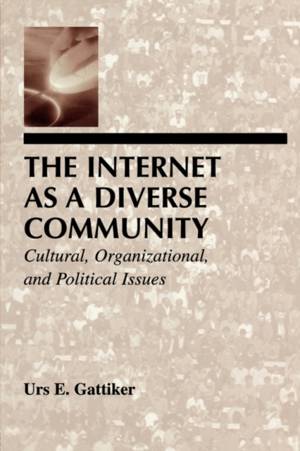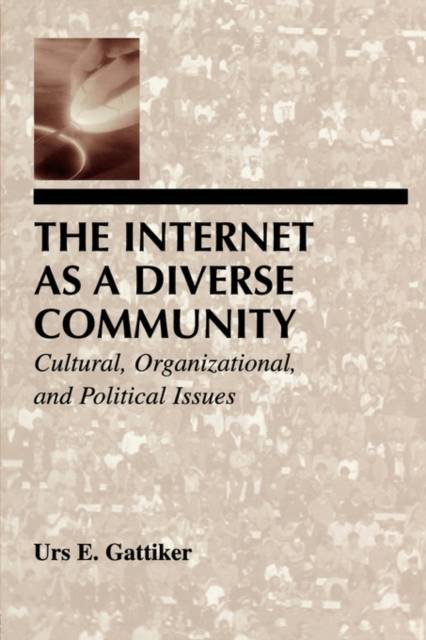
- Afhalen na 1 uur in een winkel met voorraad
- Gratis thuislevering in België vanaf € 30
- Ruim aanbod met 7 miljoen producten
- Afhalen na 1 uur in een winkel met voorraad
- Gratis thuislevering in België vanaf € 30
- Ruim aanbod met 7 miljoen producten
Omschrijving
In this volume, author Urs Gattiker offers a broad overview of Internet and technology-related theory. He examines Internet and multimedia issues from an international perspective, outlining issues of international sovereignty and the potential impact of national interests on global technology policy. He also surveys the issues of regulation and institutionalization of the Internet, examines ways for reducing the inequality of benefits from such technology, and explores the opportunities and challenges the Internet offers for consumers, firms, governments, and interest groups. In assembling this treatise, Gattiker synthesizes a vast body of literature from communication, economics, philosophy, political science, management, psychology, science policy, telecommunication engineering, and other areas.
The Internet as a Diverse Community provides readers with a framework for analyzing and selecting between many different Internet choices. It explores issues from a social-impact perspective, using examples from a variety of contexts and firms around the world. The work also offers a wealth of new social theory on such topics as moral and ethical issues and the opportunities, choices, and challenges the Internet offers for consumers, investors, managers, and public policy decision makers. It examines the current and future challenges that computer-mediated technologies present, and sets forth new theoretical perspectives on such areas as multimedia and the profit-maximizing firm; the Internet and the private user; managing multimedia productively; and the social and moral costs of various Internet options and choices. Taken as a whole, this resource provides valuable insights on the Internet and is essential reading for business, telecommunication, public policy, and technology decision makers around the globe.Specificaties
Betrokkenen
- Auteur(s):
- Uitgeverij:
Inhoud
- Aantal bladzijden:
- 296
- Taal:
- Engels
- Reeks:
Eigenschappen
- Productcode (EAN):
- 9780805824896
- Verschijningsdatum:
- 1/10/2000
- Uitvoering:
- Paperback
- Formaat:
- Trade paperback (VS)
- Afmetingen:
- 152 mm x 228 mm
- Gewicht:
- 476 g

Alleen bij Standaard Boekhandel
Beoordelingen
We publiceren alleen reviews die voldoen aan de voorwaarden voor reviews. Bekijk onze voorwaarden voor reviews.











